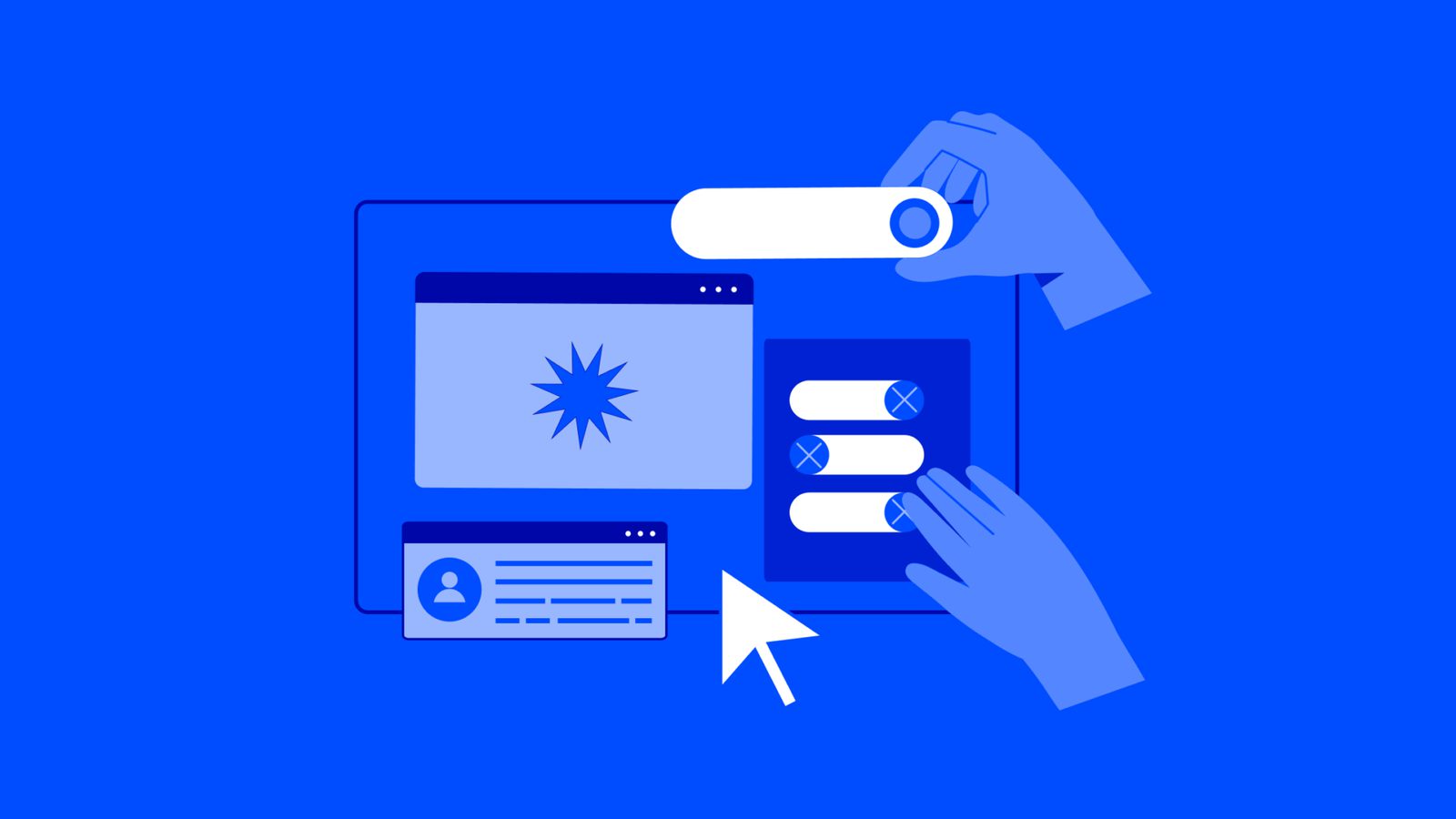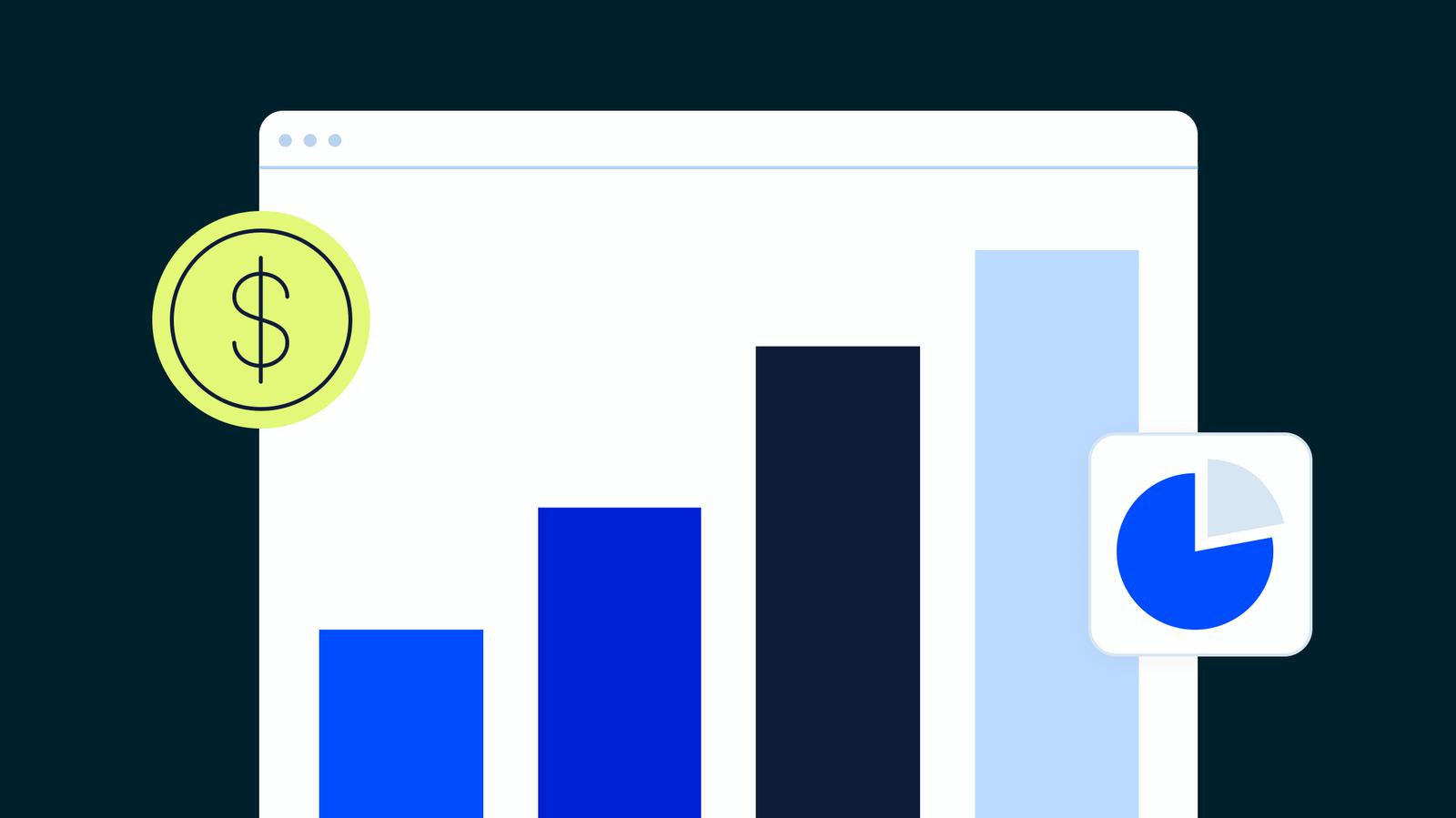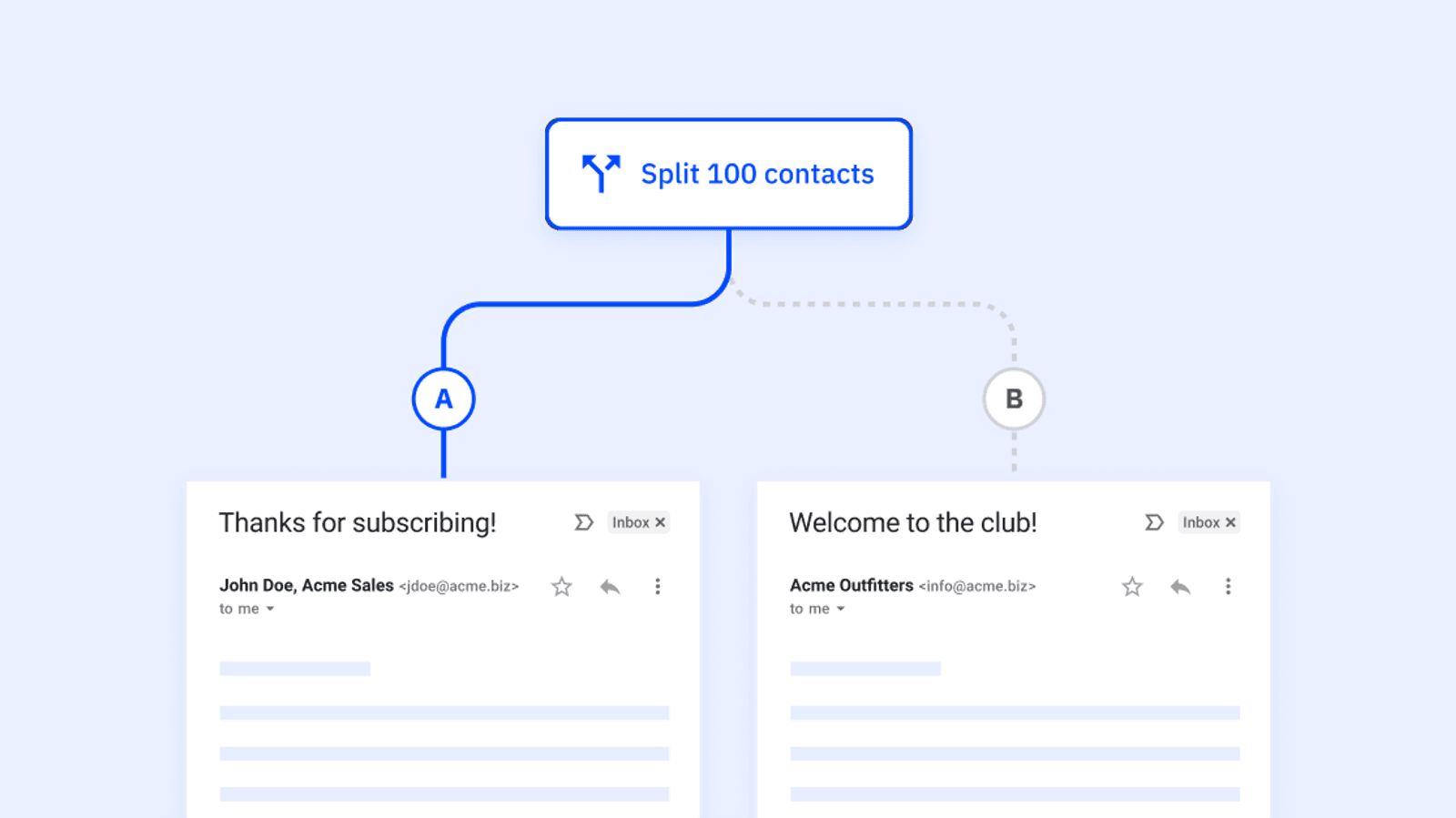As startups and brands move upmarket and seek to target higher-value enterprise clients, they come to a crucial realization:
The sales and marketing tech stacks they’ve developed don’t support a new account-based approach.
To solve this, your company needs to develop a sophisticated account-based marketing software stack, covering capabilities including:
- Customer Intelligence
- Account management and engagement
- Personalization
- Laser-targeted advertising
Keep reading to learn about these four key software categories, how they support an effective account-based marketing strategy, and which platforms to consider.
Four different types of account-based marketing software used by the best revenue leaders
As account-based marketing (ABM) is a high-level, strategic approach (as opposed to a specific tactic or channel like email marketing), ABM leaders use a variety of software types to drive more revenue.
At a high level, we can divide account-based marketing software into four broad categories:
- Account-based intelligence
- Account management and sales enablement
- Digital personalization
- Account-based advertising
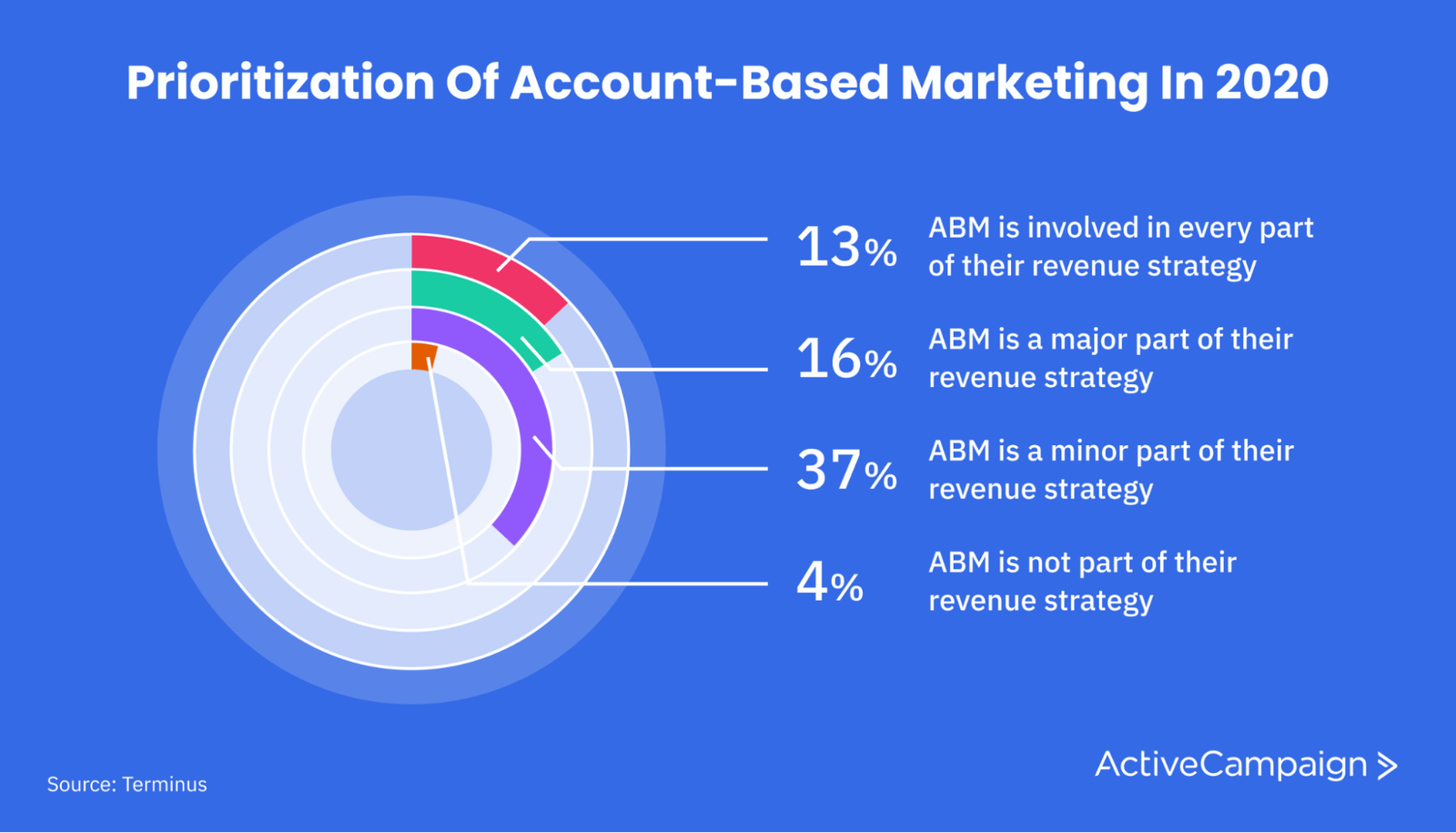
However, as ABM grows in popularity (only 4% of respondents in 2020 said an account-based program wasn’t part of their revenue strategy), we see ABM-focused software companies expanding capabilities to become the “all in one package.”
So, while we’re going to discuss ABM software in the context of these four categories, know that there is some overlap between them, and some of the specific platforms we discuss may offer features in more than one category.
Account-Based Intelligence (ABI)
Account-based intelligence software is all about gathering intel on the people and companies you aim to sell to.
ABM efforts are highly-targeted and super personalized (more on that later), and ABI software gets the right data in your hands to empower this degree of hyper-personalization.
ABI software is used to research specific accounts but can also be set up to provide automated insights on potential new targets.
For example, let’s say you’re an account-based marketer using Apollo.io, an ABI software platform.
One of your existing accounts is Oracle, for whom Robert Fox is the key contact and decision-maker. Apollo.io tracks media updates and learns that Mr. Fox has just become the CRO at Google, a company that’s not yet a client, but you would love to turn into one.
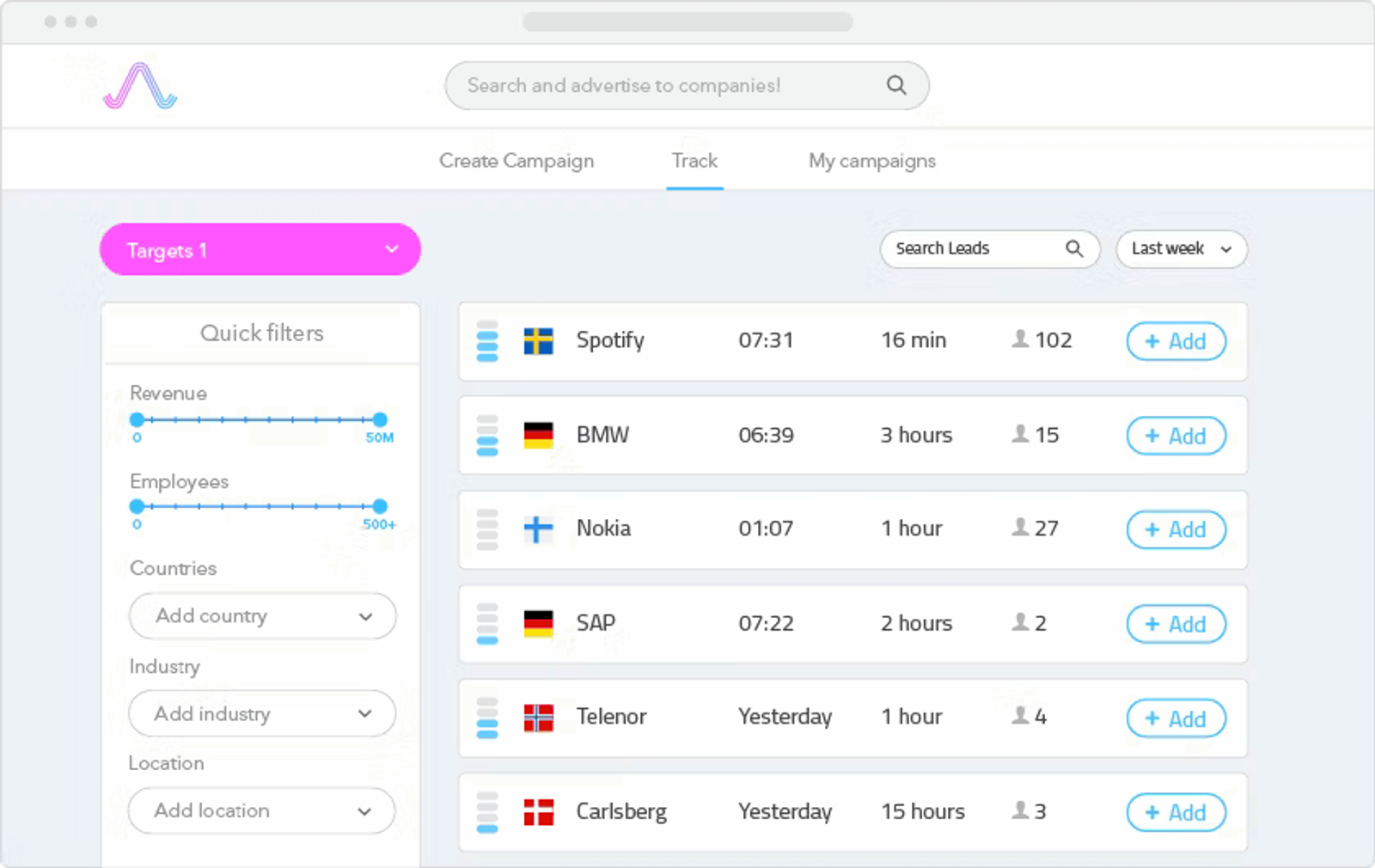
You can then leverage this insight and existing relationship to try to close the Google account.
What makes account-based intelligence software important for your business?
ABM is an account, company, and person-targeted approach, rather than, say, inbound marketing, which appeals to a target audience but doesn’t focus on specific individual companies.
Account-based marketing tactics must be highly personalized, but you can’t personalize without the right data. ABI software helps you gather the information you need to identify potential leads and prospects and implement effective ABM plays.
How to choose the right ABI software
There are several options available for gathering account intelligence. Ask these questions to choose an ABI platform that delivers optimal results:
- How accurate is the data the software pulls? What guarantees or proof do they provide?
- How robust is the data? Are the data sources and types highly-varied?
- How relevant is the available data to your application? Can the tool pull the information you need to guide your campaigns?
- How well does it integrate with the software you’re already using (e.g., your account management platform)?
Two examples of account intelligence software for ABM
Let’s take a closer look at two of the leading ABI platforms.
ZoomInfo
ZoomInfo offers several data-based platforms, two of which (SalesOS and MarketingOS) deliver advanced features for gathering account intelligence, such as:
- A database of B2B companies with over 129M emails and 50M direct dial numbers
- Buyer intent tracking
- Website visitor tracking
- Over 300 firmographic data points
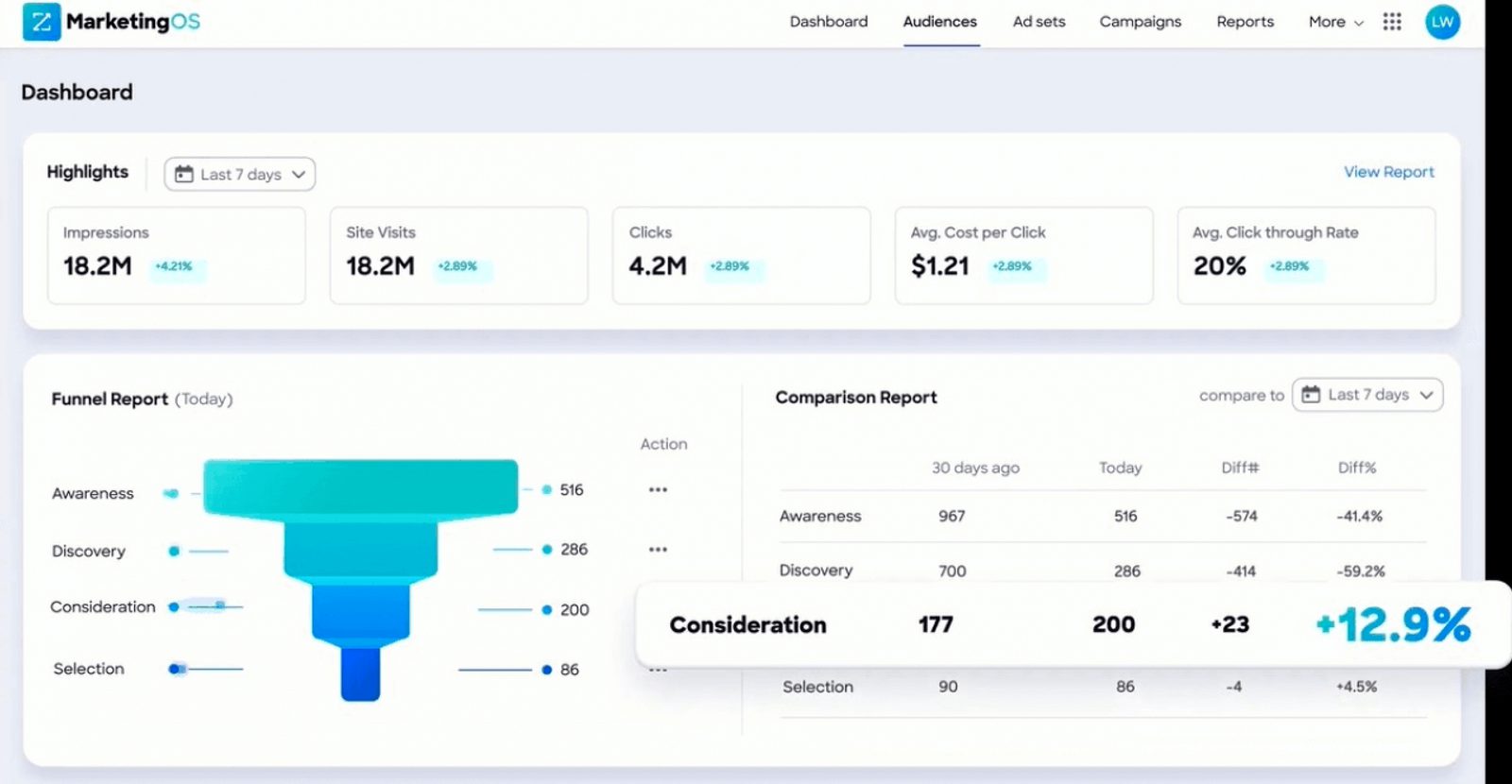
Apollo.io
Apollio.io boasts a database of over 220M contacts, more than 200 data attributes for each account, and powerful integration with LinkedIn for advanced sales prospecting.
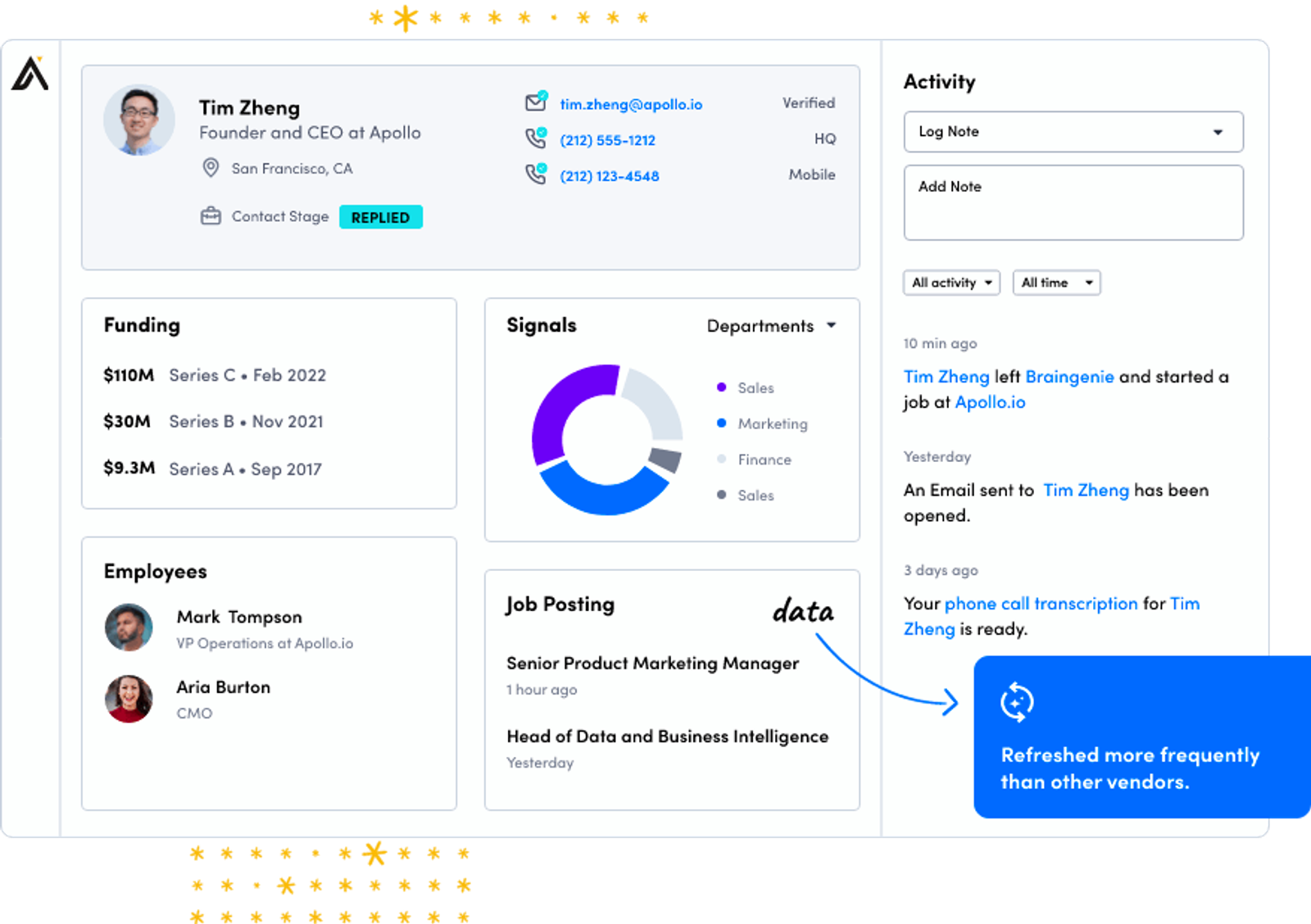
It even has a feature that lists the different funding rounds of a startup and how they went.
Create a client intake form that ACTUALLY gets results with our FREE intake form tool!
Account Management and Sales Engagement
Account management and sales engagement tend to be two separate operations in the traditional sales environment. However, within the ABM methodology, these two are more integrated, particularly from a software perspective.
The account management aspect of this software type is similar to CRM (customer relationship management platforms).
It stores and categorizes important customer information (data you’ve gathered through your ABI platform, website, and other sources) and integrates with marketing automation platforms (such as digital personalization and account-based advertising software) to run ABM plays.
The sales engagement aspect enables tactics such as:
- Laser-targeted email campaigns
- Distribution of sales content
- Pipeline management
- Task tracking and automation
For example, this screenshot of a dashboard in Engage (a product by ZoomInfo) demonstrates how sales engagement software gives sales teams a to-do list of daily tasks and insights into their performance that day. It also lists their most active accounts so revenue teams can capitalize on the strongest opportunities.
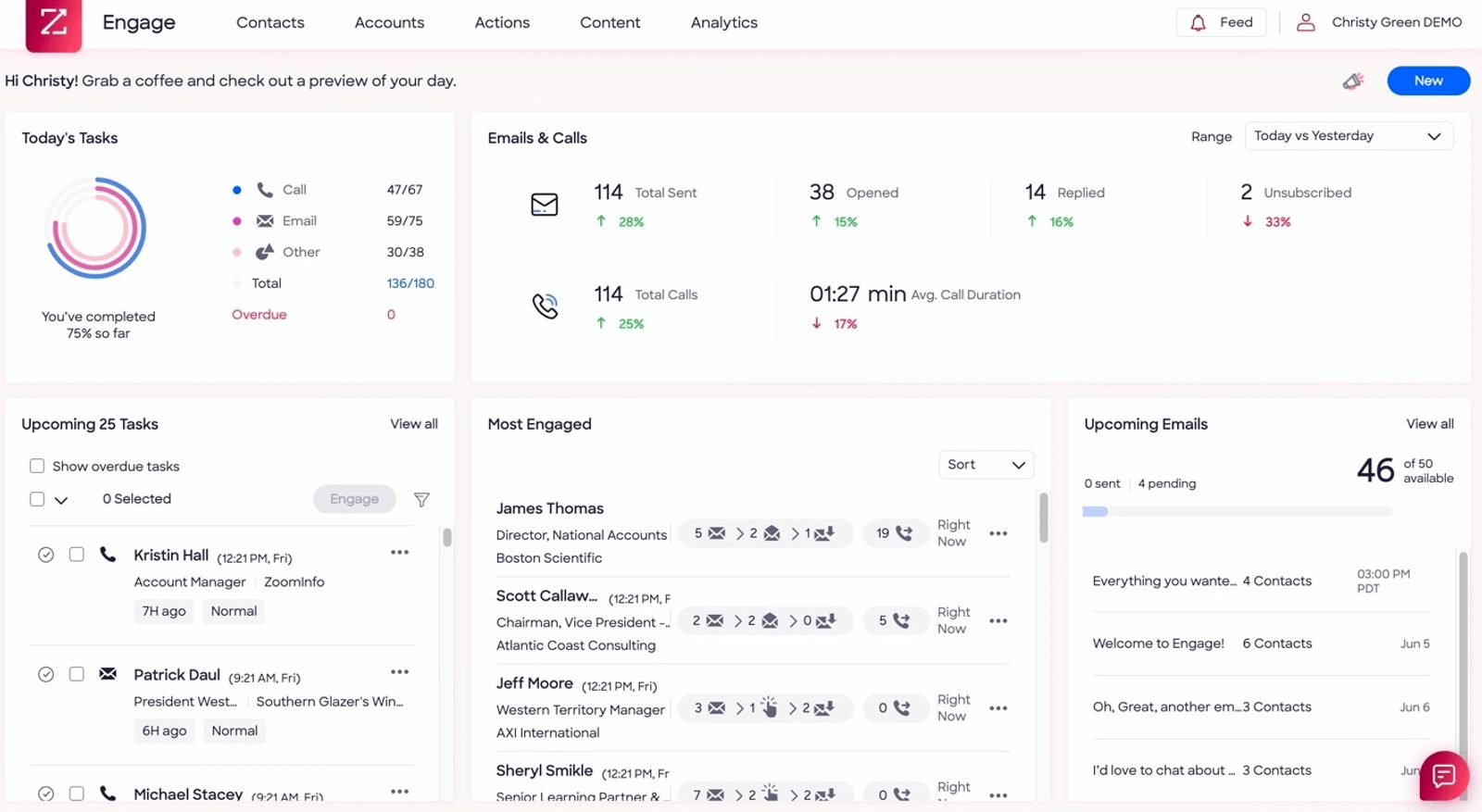
What makes account management and sales enablement software important for your business?
Account management and sales enablement are the backbone of the ABM software stack. Their features let you store all of your critical lead and prospect information, create and run outreach plays (including email, phone, and social media touchpoints), and report on the efficacy of your efforts. You can even manage an ideal customer profile and compare potential leads before proceeding.
Without this software, your account intelligence software creates insights, but you have no way to take action with them.
How to choose the right account management and sales enablement software
Strictly speaking, some of the most basic features of these software platforms are found in your typical CRM platform.
To move beyond this realm into a territory where your account management and engagement tools support a full-scale ABM approach, choose a software package that:
- Integrates deeply with your account intelligence platform of choice
- Provides advanced automation functionality
- Includes a high degree of workflow customization
- Offers multi-channel capabilities (e.g., allows you to create a sequence that includes email, social media, phone calls, direct mail, etc.)
Two examples of account management and sales engagement software for ABM
Let’s take a closer look at some of the best sales engagement platforms on the market.
Get Ahead With Account-Based Marketing
ActiveCampaign
In 2022, ActiveCampaign is much more than the email marketing tool we started out as.
Our sales engagement platform offers advanced automation functionality, customizable workflows, and powerful integrations with the tools you’re already using.
For example, you can automatically add new leads to custom audiences on Facebook Ads to run targeted multi-channel follow-up campaigns.
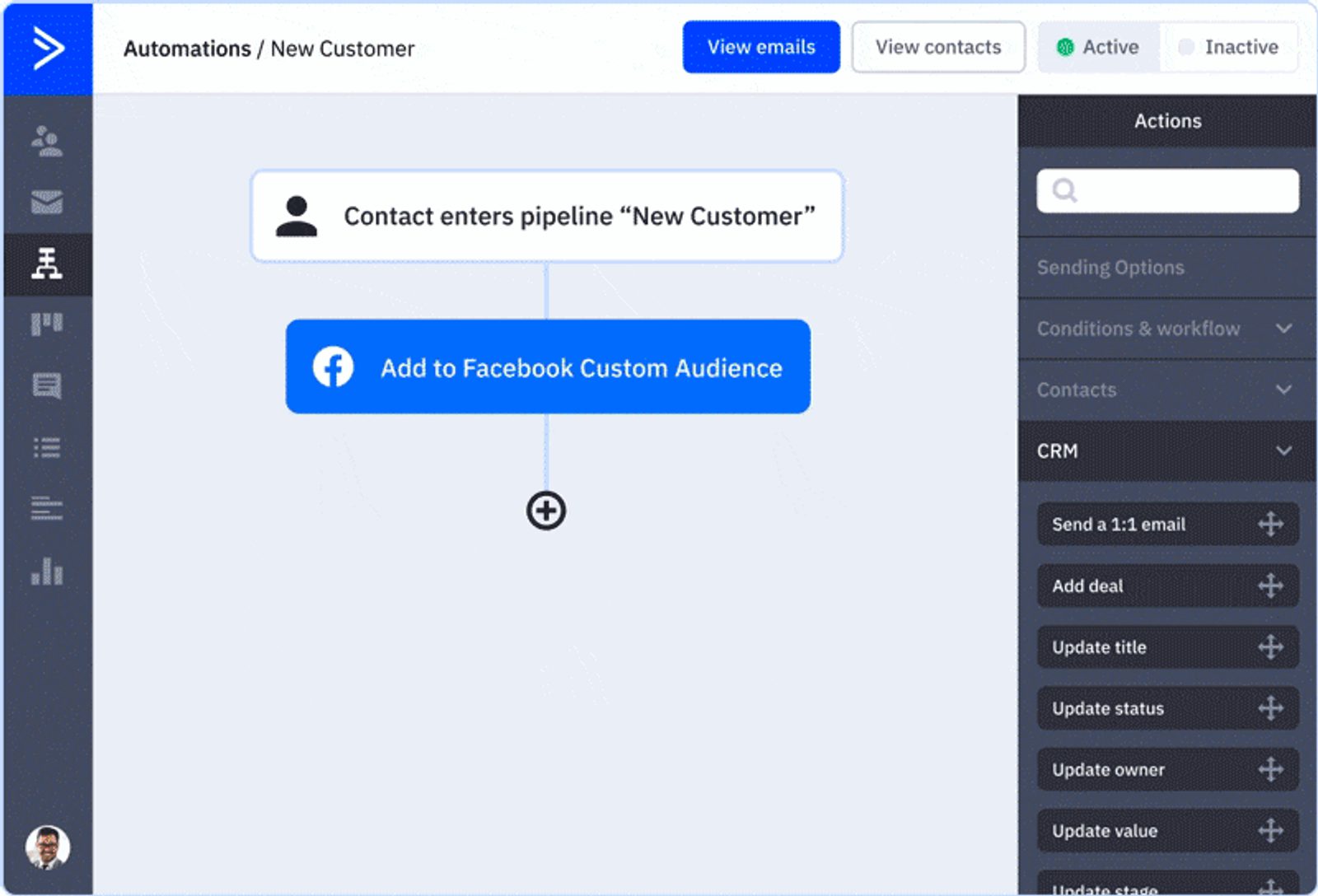
6sense
6sense is an account engagement platform built specifically for ABM-focused teams.
It uses proprietary intent data and target account signals to identify the best moments to engage with your ideal customers and offers dynamic, customizable audience segmentation to make targeted use of its social and display advertising features.
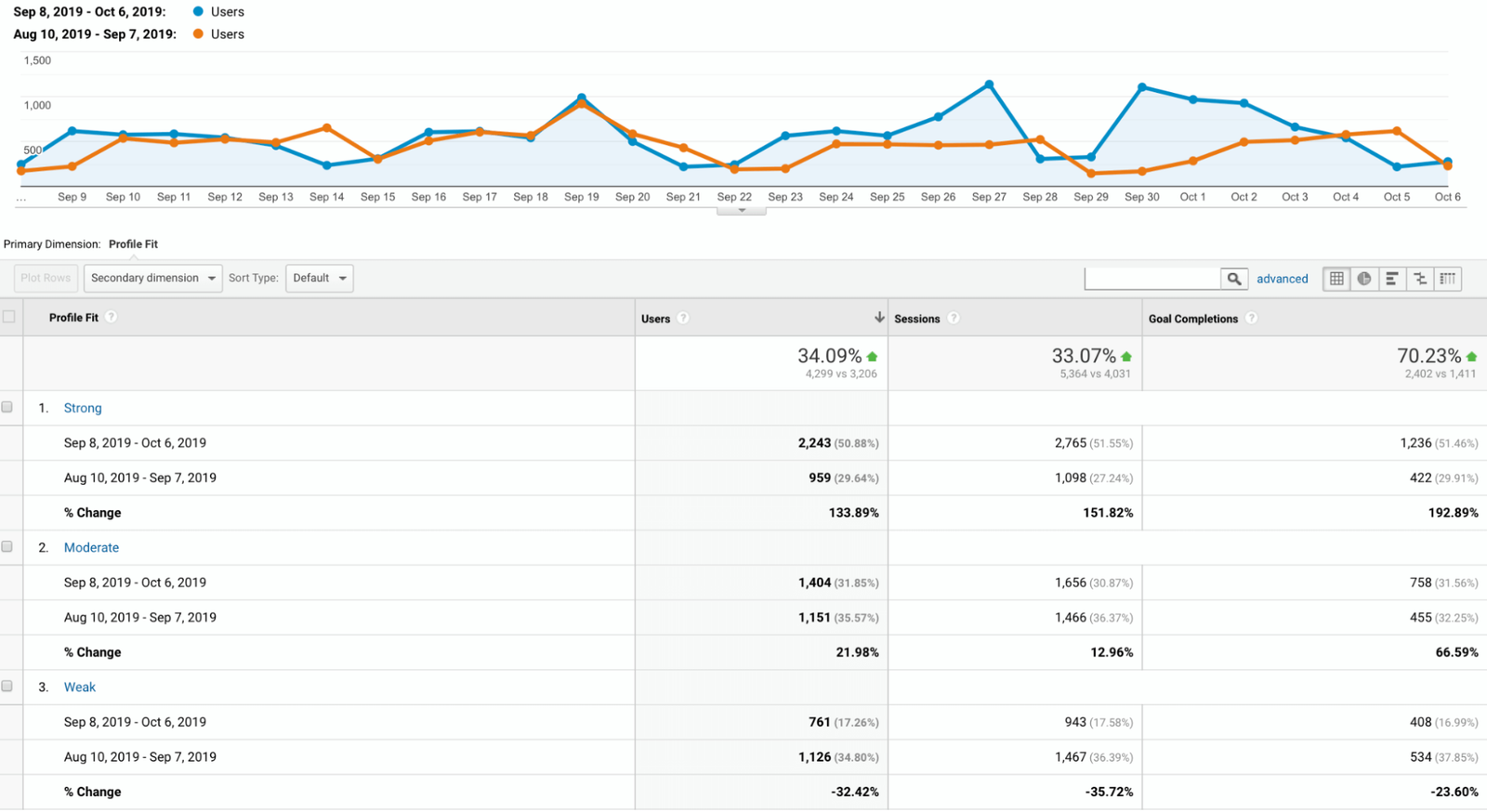
Digital Personalization

Personalization can be a lot simpler than this, though it should go beyond just using a prospect’s name in emails.
Digital personalization software helps you power such efforts, customizing content based on your customers’ behaviors and characteristics.
For example, it may allow you to design contextual content blocks for landing pages that are triggered based on viewer attributes such as industry or company size.
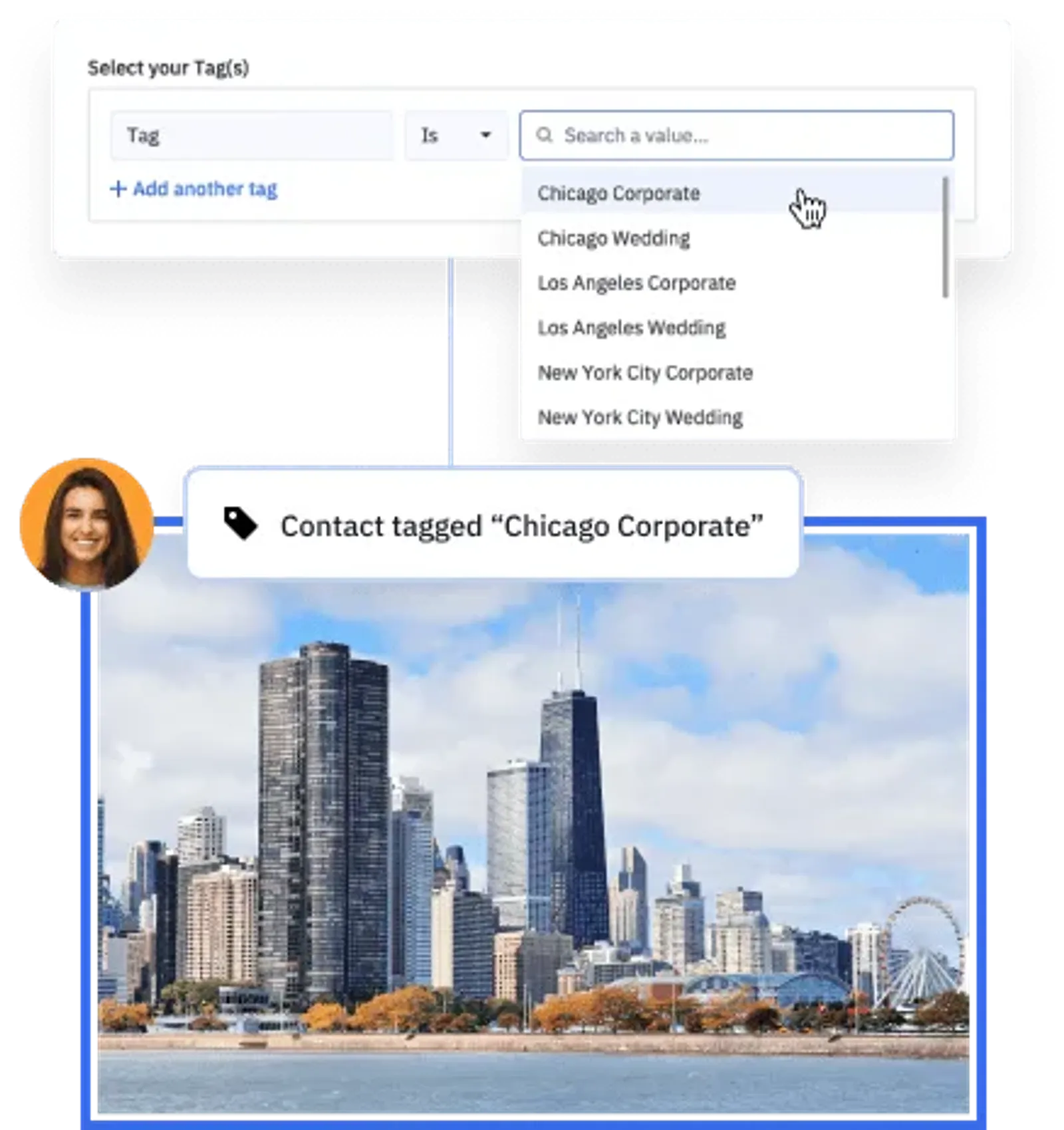
What makes digital personalization software important for your business?
Digital personalization software is crucial for automating the customization of digital touchpoints you can’t do manually.
The sender can easily personalize sales conversations, social media comments, and email outreach. However, display ads and website content are served up without real-time human involvement. You don’t have a marketer changing the website copy every time a different prospect lands on your website.
These software packages make this level of personalization possible.
How to choose the right digital personalization software
Ask these questions to select a digital personalization platform that suits your ABM requirements:
- How easy is it to personalize the types of content you need to?
- What degree of flexibility and customization is available?
- Does the platform integrate with your existing marketing automation and content management systems?
- What engagement analytics does the software offer?
- What is the quality of the digital experience like from the customer’s perspective?
Two examples of digital personalization software for ABM
Let’s take a closer look at two of the top personalization platforms out there.
Demandbase ABX Cloud
Demandbase is a comprehensive suite of ABM tools, and ABX Cloud is the software platform that delivers digital personalization, including key features such as:
- Customizable images, copy, and CTA buttons
- Identification of website visitors
- Conversion rate testing and optimization
ActiveCampaign
ActiveCampaign’s website personalization allows account-based marketing teams to trigger dynamic content using customized audience segmentation rules, geographic location, and purchase history.
You can create a tailored experience for each stage of the client’s buying journey.
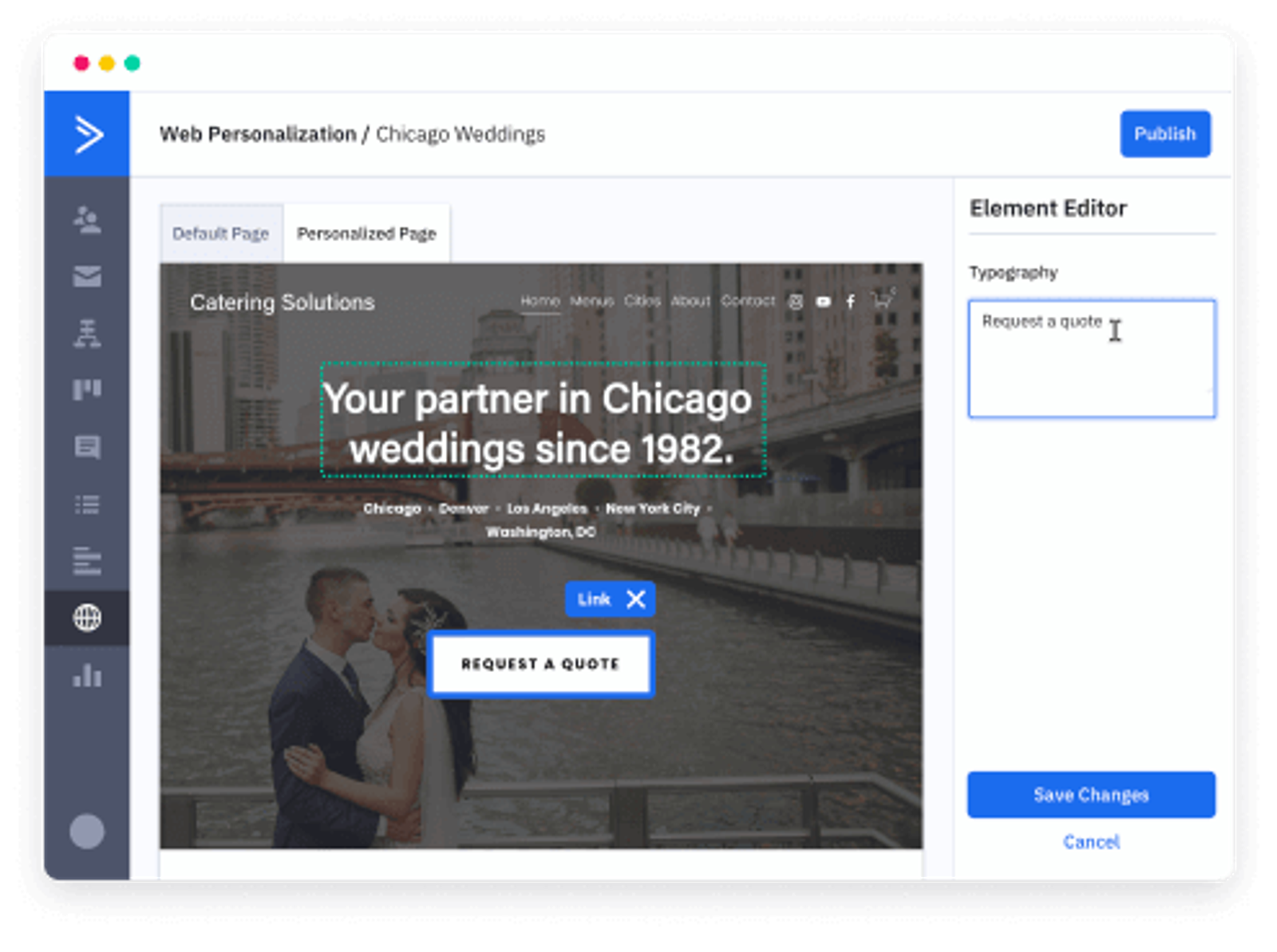
Account-Based Advertising
Account-based advertising allows B2B marketers to deliver specific, targeted, personalized campaigns across social, search, and display.
Using the data you’ve gathered with account intelligence tools and the content you’ve created on your digital personalization platform, you’ll use account-based advertising software to push your marketing message out to the right people at the right time in the right place.
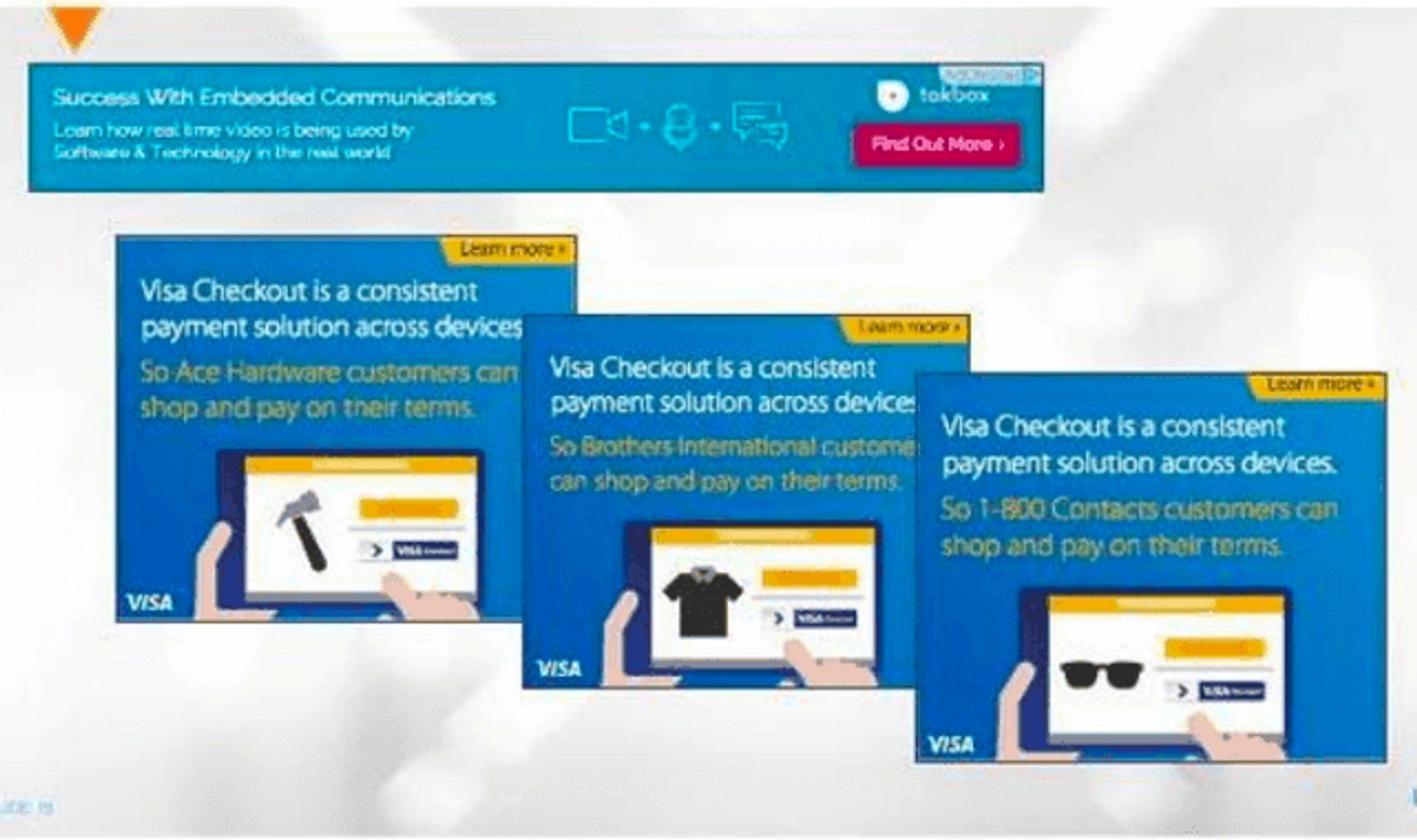
Ads can be triggered based on specific account users, like in the above example from Visa, or by account industry, such as in the display ad by Turner Technologies below.
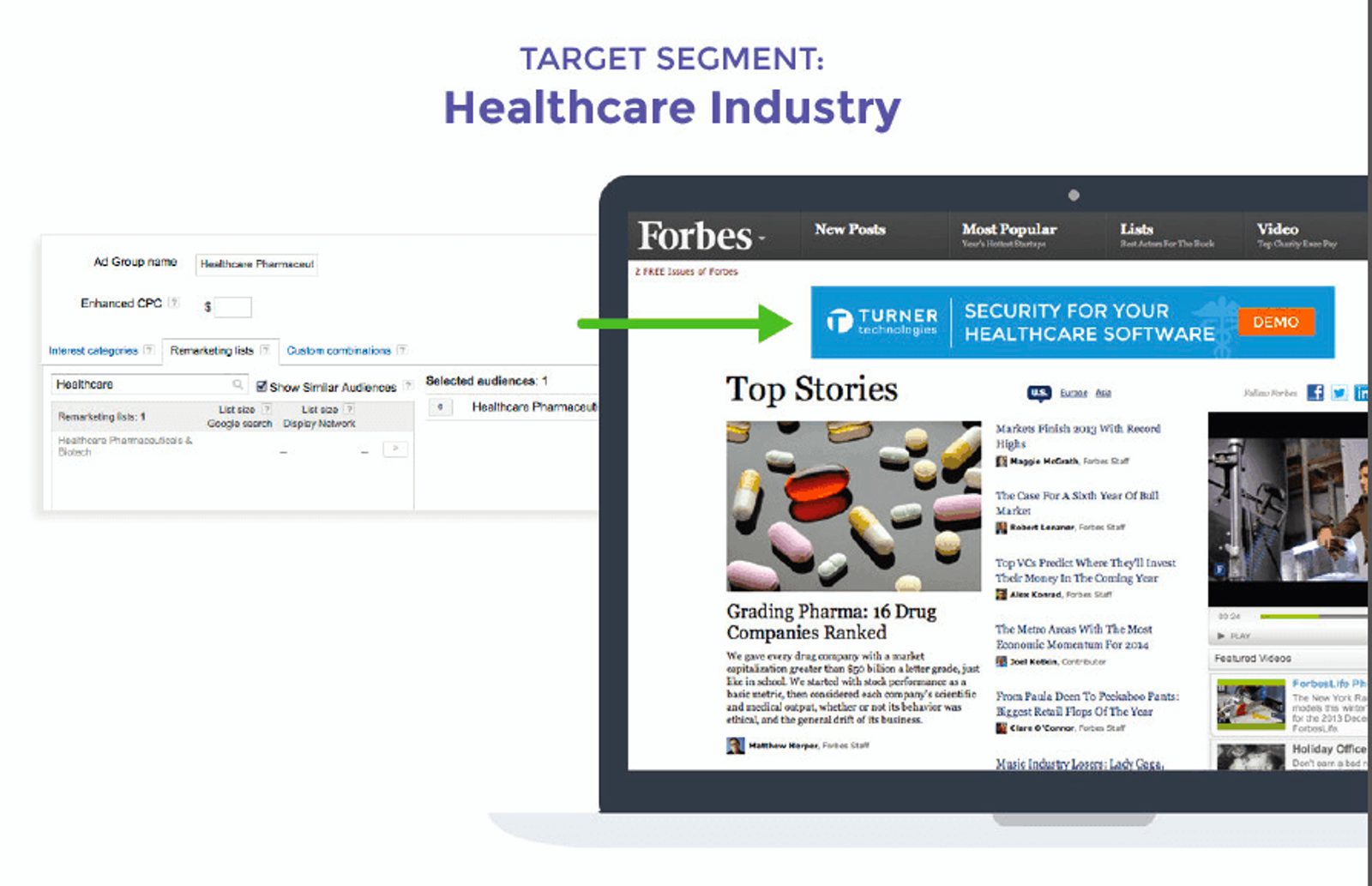
What makes account-based advertising software important for your business?
Account-based advertising software is necessary to deliver personalized ads that support your ABM strategy and promote your brand, product, and value props across multiple channels.
Strategic ad placement, such as running digital ads on high-profile, industry-relevant sites, can build implicit associations between your brand and the established site you’re advertising on, helping to develop buyer trust.
How to choose the right account-based advertising software
Effective account-based advertising software should excel in four key areas:
- The ability to build multi-channel campaigns
- Deep engagement analytics
- Integrations with account intelligence and digital personalization software
- Ease of orchestration
Two examples of account-based advertising software for ABM
Up next, a closer look at two examples of ABM advertising platforms.
Terminus
Terminus is a full-stack account-based marketing software platform with an impressive group of ad networks, dynamic account targeting, and an in-depth reporting and analytics suite.
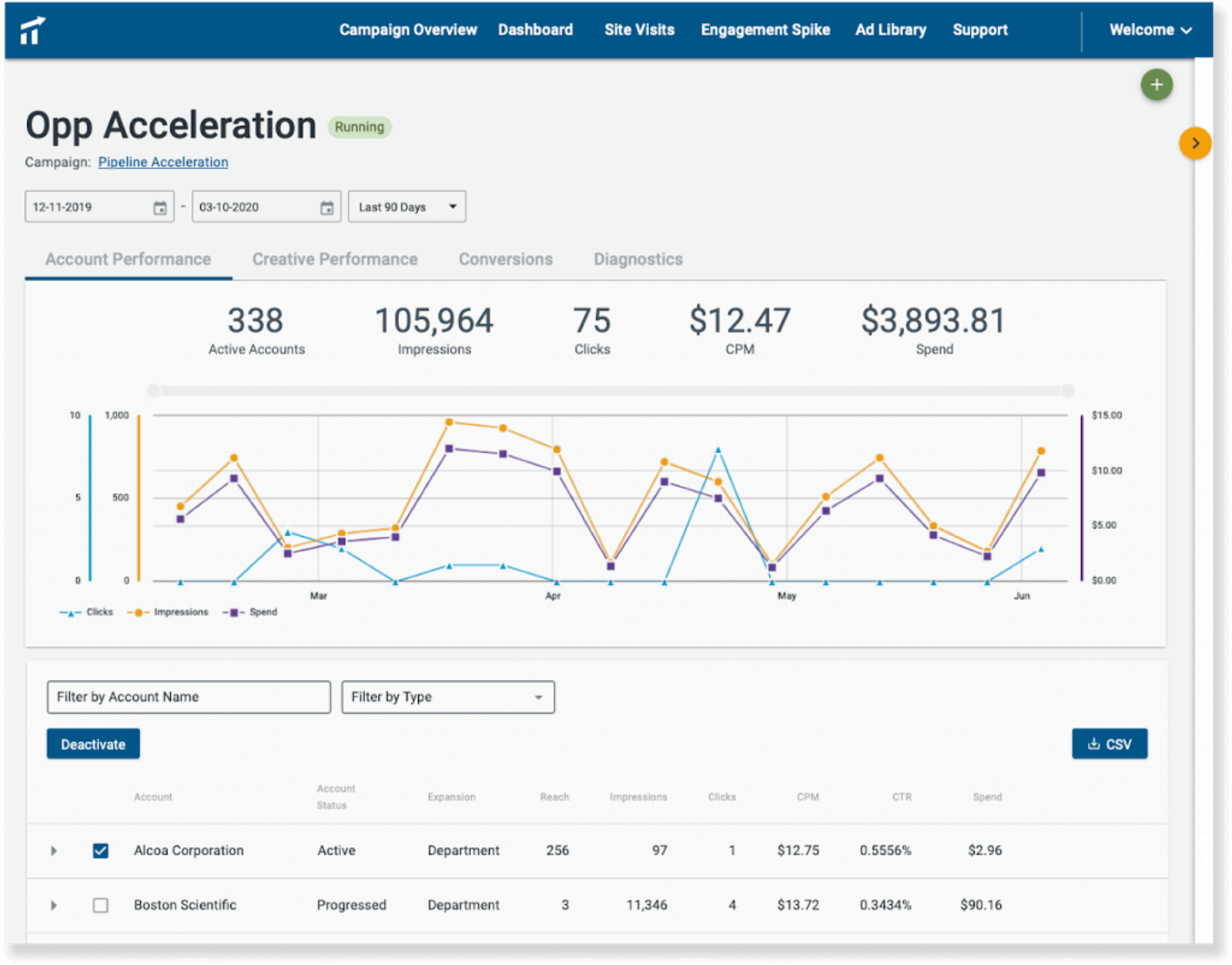
Albacross
Albacross’ account-based marketing platform focuses on display advertising, with options to own the process in-house or leverage their AdOps team for additional support.

Conclusion
As it stands today, account-based marketing software is not one thing. Instead, it comprises four different kinds of software, each providing a unique benefit to the ABM-based team.
Each is critical, particularly as they interact with each other to form a comprehensive approach.
Account-based intelligence tools capture the data to be stored in account management platforms. Sales engagement platforms execute sales activities like email and phone calls, and digital personalization and account-based advertising work together to deliver a personalized, targeted online experience.
ABM can be a fairly labor-intensive approach, which is why the most ambitious account-based marketers make use of automation wherever possible.
Check out ActiveCampaign’s marketing automation platform today and discover how we can help reduce friction and speed up personalized interactions in your ABM sequence.

